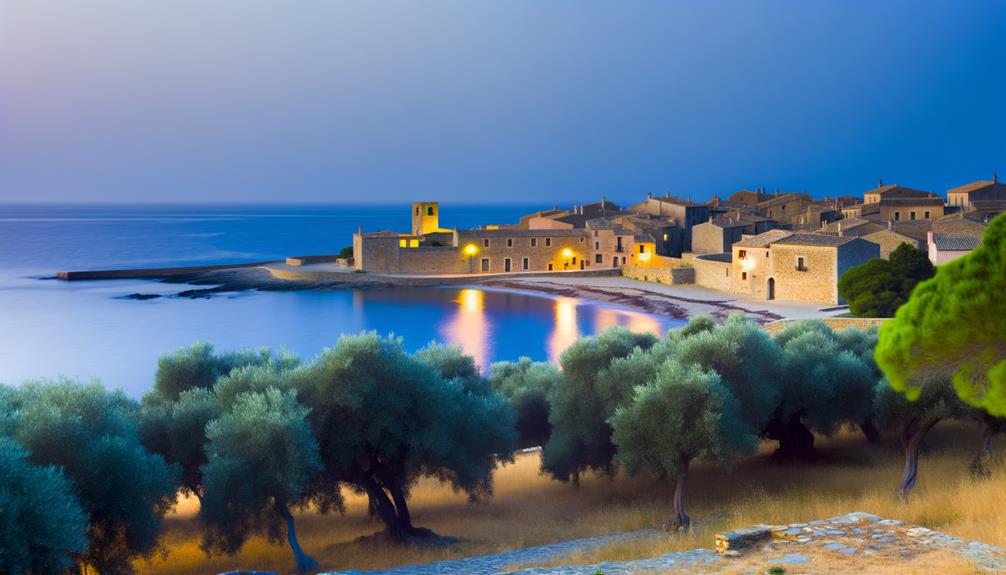Adrian Name Meaning and Origin
The name Adrian originates from the Latin Hadrianus, associated with the ancient city of Hadria in Picenum. This name means 'man from Hadria,' derived from the Latin suffix '-anus,' indicating origin or affiliation.
The historical significance of Adrian is prominently exemplified by Emperor Hadrian, celebrated for his architectural and cultural achievements during his reign from 117 to 138 AD. Over centuries, the name has been embraced in literature, arts, and modern media, embodying leadership and cultural refinement.
Its fluctuating popularity underscores its timeless appeal and multifaceted persona. Intrigued by the rich history and cultural impact of Adrian?

Key Takeaways
- The name Adrian originates from the Latin 'Hadrianus,' meaning 'man from Hadria.'
- Hadria was an ancient city in Picenum, significant in the name's etymology.
- The name evolved from Hadrianus to Adrianus and then to the modern Adrian.
- It is historically linked to Emperor Hadrian, known for his architectural achievements.
- Adrian's popularity has varied over time, reflecting cultural and societal trends.
Etymology of Adrian
The name Adrian has its etymological roots in the Latin Hadrianus, which was originally a Roman cognomen indicating a connection to the city of Hadria. This ancient city, located in the region of Picenum, gave rise to the name, signifying 'man from Hadria.'
The Latin suffix '-anus' was commonly used to form adjectives denoting origin or affiliation. Over time, Hadrianus evolved into Adrianus, and subsequently into the modern Adrian. The name's transformation reflects the linguistic shifts from classical Latin to medieval Latin and later to contemporary forms.
Understanding the etymology of Adrian provides insights into its historical layers and cultural significance, offering a glimpse into the enduring legacy of Roman nomenclature practices.
Historical Significance
Adrian's historical significance is deeply intertwined with its association to prominent figures and events in Roman history, particularly Emperor Hadrian, whose reign marked a period of considerable architectural and cultural achievements.
Hadrian, reigning from 117 to 138 AD, is renowned for his extensive building projects, including Hadrian's Wall in Britain and the reconstruction of the Pantheon in Rome. His governance epitomized stability and consolidation within the Roman Empire, reflecting a nuanced blend of militaristic and cultural prowess.
The name Adrian, derived from the Latin 'Hadrianus,' meaning 'from Hadria,' a town in Northern Italy, carries connotations of leadership, resilience, and cultural refinement. This historical backdrop endows the name Adrian with a legacy of imperial grandeur and scholarly patronage. The name Adrian has been borne by numerous saints, popes, and rulers throughout history, further solidifying its association with prestige and influence. Across different cultures and languages, the name has retained its noble connotations, making it a popular choice for parents seeking a name that signifies strength and distinction. In modern times, the popularity of the name Adrian continues to grow, as parents are drawn to its timeless elegance and Owens name meaning.
Cultural Impact
Exploring the cultural impact of the name Adrian reveals its enduring presence in literature, arts, and contemporary media, reflecting its widespread appeal and timeless resonance.
In literature, notable characters such as Adrian Leverkuhn in Thomas Mann's 'Doctor Faustus' exemplify its profound narrative significance.
The arts have similarly embraced the name, with Adrian being the eponymous subject of various works, symbolizing diverse virtues.
Contemporary media continues this tradition, with characters in films and television often named Adrian, embodying roles that range from heroic to complex.
This ubiquity underscores the name's versatility and its ability to convey multifaceted personas.
Such extensive representation across cultural platforms highlights Adrian's lasting influence and the depth of its integration into global artistic and narrative traditions.
Popularity Over Time
Over the decades, the name Adrian has demonstrated fluctuating levels of popularity, reflecting broader sociocultural trends and shifts in naming conventions. Historically, its popularity has varied notably, influenced by factors such as media, famous personalities, and cultural movements. Remarkably, its prevalence followed these patterns:
- Early 20th Century: Modest usage, with occasional peaks due to literary and historical influences.
- Mid-20th Century: A gradual rise, coinciding with increased global connectivity and cultural exchange.
- Late 20th to Early 21st Century: Notable surge, reflecting modern naming trends favoring classic yet unique names.
These trends underscore how names like Adrian evolve in resonance with changing societal values and preferences, making it a timeless yet contemporary choice.
Famous Adrians
Prominent figures named Adrian have made significant contributions across various fields, including arts, sports, and politics, highlighting the name's broad appeal and enduring legacy.
In the arts, Adrian Lyne, a British filmmaker, is renowned for directing critically acclaimed films such as 'Fatal Attraction' and 'Indecent Proposal.'
In sports, Adrian Peterson has established himself as one of the most formidable running backs in NFL history, earning multiple awards and breaking numerous records.
Politically, Adrian Hasler, the former Prime Minister of Liechtenstein, has played a pivotal role in shaping his nation's policies.
These individuals exemplify the versatility and prestige associated with the name Adrian, underscoring its historical and contemporary significance across diverse domains.
Conclusion
The name Adrian, with its roots stretching back to ancient Rome, evokes images of classical grandeur and enduring legacy. Its historical significance, coupled with a profound cultural impact, paints a portrait of timeless elegance.
Over centuries, Adrian has maintained its charm, reflecting a steady popularity across diverse societies. Eminent figures bearing the name further underscore its prestigious allure.
Consequently, Adrian emerges not merely as a name but as a symbol of historical continuity and cultural richness.






